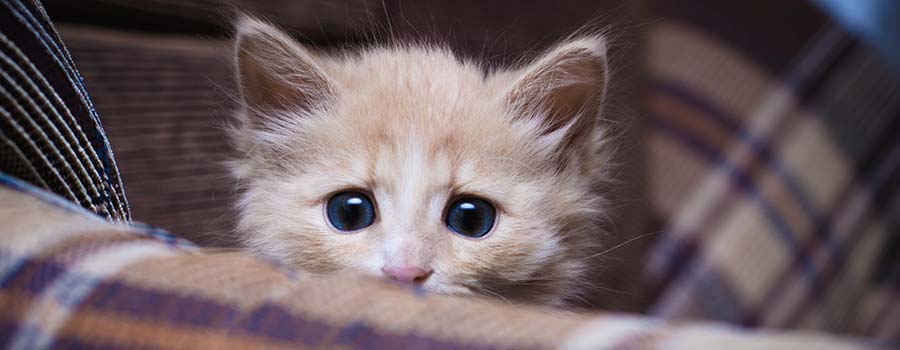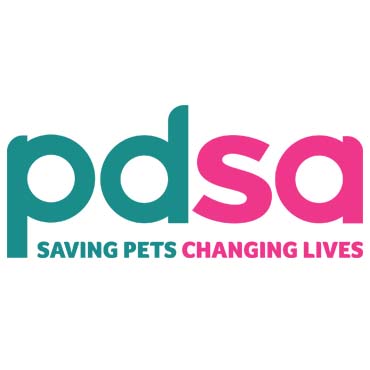Last updated: 29 July 2020
The good news is that there are only around 15 pets across the world who have tested positive for the virus, and current advice from the World Health Organisation and British Veterinary Association is that there’s no evidence that pets can pass Covid-19 to their owners.
We encourage all pet owners to take sensible precautions, and follow the latest guidelines.
FAQs:
- Can pets catch Covid-19?
- What should I do if I'm self-isolating?
- Can I still walk my dog?
- Does my pet need to wear a mask?
- Can pets spread Coronavirus?
- What should I do if my pet starts coughing/sneezing?
- As a pet owner, how can I stop the spread?
- What should I do if I need a veterinary prescription?
- Is hand sanitiser poisonous to dogs?
- Can my cat still go outside during the pandemic?
- Does my pet need a coronavirus test?
I've heard that pets can catch Covid-19, is this true?
There have been a very small number of pets (around 15 in total) across the world that have tested positive for SARS-Cov-2 (the virus that causes Covid-19), including a recent case of a cat testing positive in the UK. This cat had had close contact with their owners who had also tested positive for Covid-19. From the small number of cases of Covid-19 in pets, it is thought that some pets can show some symptoms if they are infected, but these are mild and usually improve after a few days. There is no evidence that pets can transmit the virus to humans. However, we’d recommend taking a few extra precautions such as washing your hands thoroughly after stroking, feeding or cleaning up after your pet just to be on the safe side. But you shouldn’t worry that your pet is a risk to you, the current pandemic is due to human to human transmission of the virus. We have more advice on pet care during this time.
I am self-isolating, can my pet stay with me?
Yes, in most cases your pet can stay with you but it’s advised to avoid close contact, such as sharing a bed. It’s also even more important to wash your hands after touching and feeding your pet if you have symptoms or have tested positive for the Covid-19 virus and it’s always a good idea to avoid letting them lick your face or share your food. You might also want to wear a face mask when touching or caring for your pet if you are showing symptoms yourself. Read our guidance for pet owners on this.
Can I still take my dog out for a walk?
Yes, you can still walk your dog as long as social distancing is maintained between people (and dogs!). Keep your dog on a lead or under close control around others and in public places and thoroughly wash your hands before leaving, and as soon as you get home again.
Dogs can be let out in the garden, or taken out to the toilet as needed. If you don’t have a private garden, just make sure you maintain your social distance if other people are around in a shared outdoor space.
Some areas are facing localised lockdowns, which may limit the amount of times you are able to leave your home in a day. Check government and local guidelines if you’re unsure.
Does my pet need to wear a mask?
No, putting a mask on your pet isn’t something we’d recommend. Wearing a face mask could be distressing for pets and may affect their ability to breathe normally, particularly in flat-faced breeds.
However, recent guidance means that we as owners may need to wear face coverings more regularly which can be scary for our pets. Read our advice on getting your pet used to seeing people in facemasks.
Can pets spread Coronavirus?
Although we don’t have any evidence to suggest that pets can spread coronavirus directly, they could have the virus on their fur if they have been in close contact with a person with Covid-19, just like anything else we touch. The virus is most commonly passed from person to person through coughing and sneezing but there is evidence that the virus can live on surfaces for some time. The length of time depends on the type of material, temperature and other factors. As this could include your pet’s fur, it’s important that if you are showing any symptoms you try to minimise contact with your pet as much as possible.
If you don’t have symptoms, it’s still important to maintain good hygiene practices, such as regularly washing your hands thoroughly with soap and hot water, especially after handling or feeding your pet. It’s always sensible to avoid letting your pet lick your face or share your food.
Pets can be a great source of comfort and a spending time with your pet will be a good thing for physical and mental health of many owners. There is no need to give up or quarantine pets and we would urge owners not to panic or be concerned that their pets could give them the Covid-19 virus.

Are you finding this page useful?

For more tips and advice on taking care of your pet throughout the pandemic and beyond, sign up to our emails.

What should I do if my pet starts coughing and sneezing?
Unlike in people, the Covid-19 virus seems to affect extremely low numbers of pets and causes few symptoms. So far, we’ve seen that the virus doesn’t seem to cause symptoms in dogs and can only causes mild signs in cats and ferrets (such as a cough) in pets whose owners have tested positive for Covid-19 and in laboratory research studies. Check out our Pet Health Hub for information on the Covid-19 virus and the risk to our pets.
If you notice any signs of illness in your pet we would advise calling your vet as usual in the first instance. It is unlikely that their signs will be related to the Covid-19 virus but it’s always important to get your pet checked if you notice any signs that they might be unwell. Your vet will advise you on the best course of action based on your circumstances. Please be aware that many vet practices will be operating very differently from usual to keep everyone safe. Always try to contact them before going to the practice to check how their service might be affected and try to use phone or remote consultations where possible. Please bear with your local vet practice as they work to follow Government guidance in this unprecedented situation.
You can also access our online symptom checker.
As a pet owner, what can I do to help prevent the spread of the virus?
Please follow the latest Government advice by maintaining social distancing (for you and your pet) when you’re out, and following good hygiene practices, such as washing your hands frequently, especially before and after leaving the house for essentials. We’d also recommend washing your hands after handling or feeding pets, especially if they go outside at times when you’re not with them, as this may also help to prevent the spread of the Coronavirus. It’s also a good idea to avoid touching other people’s pets where possible, for instance if a cat comes to your garden, and if you’re caring for someone else’s pets, make sure you’re even more careful with your hand hygiene and try to keep a distance and consider wearing a mask if you’re going to be spending a lot of time with someone else’s pet.
What if I can’t leave the house but my pet needs veterinary care or a prescription?
If your pet is needing veterinary care or medications at this time it’s best to give your vet a call to discuss your situation and see how they may be able to help. Vets are doing everything they can to make the pets under their care get the help they need at this difficult time.
To keep everyone safe it's likely they are putting measures in place to help their clients and patients, such as providing phone consultations, posting out prescriptions and limiting client access to the buildings. The veterinary profession, including PDSA, is doing everything possible to ensure essential and emergency services can be maintained and are committed to providing support for all the pets under their care during this difficult time while complying with Government guidance. We thank you for your patience and understanding.
Is it true that hand sanitisers/anti-bac gel is poisonous to dogs?
We are aware of a false post being shared on social media that suggested hand sanitisers contain Ethylene Glycol, a chemical that is found in antifreeze and is extremely toxic to pets. This isn’t true - hand sanitisers contain ‘ethanol’ (alcohol), not ethylene glycol. Ethanol (alcohol) can be harmful if ingested in a large quantity (i.e. an entire bottle), but it evaporates quickly and IS NOT HARMFUL if it’s accidentally licked in small quantities from your skin, or on your pet’s fur. Please do not let this false information put you off using hand sanitiser products at this critical time. However, it’s always important that you only use pet-safe products on your pet so we wouldn’t recommend applying human products to your pet’s skin or fur.
Can my cat still go outside during the pandemic?
If nobody in the household has symptoms or has tested positive for the Covid-19 virus then cats that would normally go out can continue to do so. It’s really important to maintain good hand hygiene when around your cat by washing your hands before and after touching them, their food or any pet related items. We don’t recommend touching anyone else’s cats that might come to visit or want to make friends in the street.
If you have Covid-19, then it’s best to avoid close contact with your cat and even more important to wash your hands regularly. You might also want to consider using a mask when you prepare your cat’s food or have contact with them. If your cat is happy to stay inside, you may want to encourage them to do so, but make sure you prepare them as changes in a cat’s routine can be stressful and you’ll need to make sure they stay entertained and have quiet areas away from other pets and people. Read our FAQs for owner’s self-isolating with pets.
Does my pet need a coronavirus test?
Routine testing for the Covid-19 virus in pets is not currently recommended as so few pets have been affected by the virus and then they have only shown mild symptoms or no symptoms at all. The main way the virus is transmitted is through human to human transmission. Although pet tests for the Covid-19 virus exist, they are not widely available and are being prioritised for use during scientific studies or where an animal is at very high risk (e.g. endangered species). At this time vets are being advised to test and investigate other more common causes of illness in pets before considering Covid-19 virus testing. If you are worried about your pet’s symptoms, it’s always best to contact your vet for help.
For more information and advice for pet owners during this outbreak, please visit our page.
You can view the latest Government advice online or on the NHS website.

